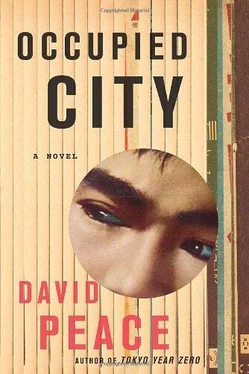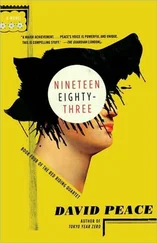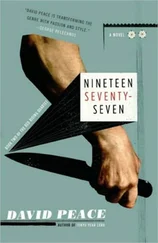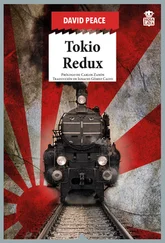The Killer looks up from the black water. A man is standing over him, a man he recognizes. A man who has been following him.
The living tend to the graves of the dead / The dead watch over the lives of the living / The lives of the living, divided and dissected / Those whom receive tribute, those that give tribute / Those of substance and those of none, those who matter and those who don’t / The child divides, the child dissects
In the Death Factory, my work now began. There were two types of workers; those who were recruited, recruited for their brains, and those who were conscripted, conscripted for their brawn. I was recruited, recruited for my brain; its knowledge of disease, its knowledge of death. Loyal to the Emperor, subservient to the State, deferential yet intelligent, I was the ideal worker; fervent in my devotion to the Emperor, to Japan and to victory; unfailing and unquestioning in my belief in all three. My work was in the field of hygiene.
On the Black Ship, in a coffee-shop, a man is whispering to the Killer, ‘I hear many of them have got good jobs now, in the prestigious universities or in the Ministry of Health and Welfare. I heard some of them got payments of one or two million yen. It’s unbelievable. Look at us! Look what we’ve got! Barely the clothes on our backs.
‘I think of all I did for them, for Ishii and for the Emperor, and look at me now. I can’t get a job and I can’t sleep, can’t sleep for the memories and for the ghosts.
‘I remember one day, towards the end, a truckload of about forty Russians was brought in. But we already had too many logs, more logs than we could use, and so we had no need for this lot. So we told the Russians that there was an epidemic in the region and that they should all get out of the truck so we could inoculate them. And so, one by one, they jumped down from the truck. They stood in line with their sleeves rolled up. Then I went down the line, one by one.
‘First I rubbed their arms with alcohol, then I injected them with potassium cyanide. Of course, there was no need to rub their arms with alcohol first. I did it purely to put them at their ease. Then, one by one, they all fell to the ground in silence.
‘But I can’t forget the way they looked at me as I rubbed their arms and then injected them. They looked at me with trust in their eyes, with relief and even gratitude.’
The Killer picks up the bill from the table. The Killer gets up from the table. The Killer pays the bill and leaves.
Flowers and insects, animals and people / The child collects and the child catalogues / Flowers then insects, animals then people / The child examines and the child experiments / Those with blood and those without, those with this blood and those with that / The child studies and the child learns
In the Death Factory, hygiene was of the utmost importance. Fear of accidents and outbreaks, infections and contaminations, was all-pervasive. Despite the precautions and procedures taken, there were frequent unintended civilian casualties among the staff and technicians of the Unit. Priority was therefore given to hygiene and to research into better methods of hygiene control.
Initially, my work involved only the examination, treatment and prevention of communicable diseases among army personnel and their families. The examination and treatment section in which I worked was separate from the main complex. Our building was known as the South Wing and we also worked closely with the Army Hospital in Harbin.
At first my work was neither particularly demanding nor dangerous and my biggest fear was of becoming infected myself, particularly with the plague. Often we did not know what was wrong with a patient until it was too late. I remember that once a civilian technician from the Unit was brought in with suspected syphilis. However, the man had the plague and soon succumbed and died. When such a patient was brought in, everyone was careful to avoid getting any cuts. Often we did not shave.
My main work was the examination of blood, urine and faeces samples, testing for and measuring changes in haemoglobin. Often this involved visits to the prison building. Whenever I entered the prison, I had to walk through a tray of disinfectant. The samples I received here had been taken from prisoners, who were also known as logs. I believe they were known as logs because the local population had been told that the Death Factory was involved in the manufacture and production of lumber. The samples were needed in order to determine a subject’s condition prior to any experiment or trial. Further samples were then taken from logs after they had become infected with various viruses. This was how the data from bacteriological tests was compared. Having received the samples in prepared slides, I would then travel back by truck to the South Wing. Often I would have to make this journey two or three times a day. Often I would also be ordered to bring back and forth research papers and human organs. These were my duties, this was my work.
There was no real research into preventative vaccines in our work at the examination and treatment centre. The nearest we came to any such vaccine was the development of an invigorative solution. The base of this solution was garlic and we would give it to patients in order to speed up their recovery. Often I would inject it myself in order to overcome the depression and the fatigue caused by the isolated location and the long hours. I understood why many of the Chinese and the Manchurians were addicted to heroin. It was a temptation to which many surrendered.
On the Black Ship, the Killer writes a letter, To Your Excellency Ishii Shirō, Former Lt. Gen. Army Medical Corps —
Dear Sir ,
You must be very surprised to receive this badly scribbled and most rude letter so unexpectedly. But I was one of your subordinates at Pingfan in China and I write this letter, not only on behalf of myself, but on behalf of the many men who dutifully served under you during the war in China .
After the turmoil at the end of the war, we came back to Japan. But the defeated Japan has not been very cordial in welcoming us back. Our homes have been burnt, many of our wives and our children are dead, and the little money we have been given towards our rehabilitation, towards food and shelter, has been consumed by inflation. Because of our hardships, many of us have now been driven to contemplate committing wicked acts in order to simply feed and clothe ourselves .
However, before embarking on such a dark path, I beseeched my former colleagues to wait until I had at least sought the counsel and guidance of you, our thoughtful former commanding officer. Surely, I told my former colleagues, if Lt. Gen. Ishii knew of our plight, he would rescue us, his former loyal subordinates who so faithfully carried out his every order, no matter how gruesome the work, no matter at what cost to our souls .
Of course, because of our current hardships, we all thought of dying as we have retained the means to do so. But then we realized that if you had found the courage to live on, then we certainly should also be able to overcome our present difficulties and accomplish anything with your inspiration and generous assistance .
So please, we beg you, our former commanding officer, that you loan us, the forgotten and unfortunate ones, as funds towards our rehabilitation, the sum of ¥50,000 and which we swear will be returned to you within two months. So please be gracious and kind enough to send the money to the above address .
Of course, we should like to visit you personally but, since we have been so reduced to poverty, we are too embarrassed and so are unable to do so. But please, please help us .
From your former subordinates .
Читать дальше












